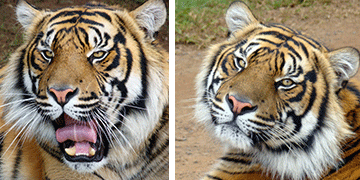Does China’s president know the truth about tigers and rhinos?
Surely China’s President Xi Jinping would not support the commodification of tigers and rhinos if he knew all the facts.
What stands in the way of his enlightenment is the State Forestry Administration (SFA), which is his staff’s go-to ministry on the issue. And the SFA has a conflict of interest. It’s giving its all to enforcing China’s 1980s-vintage Wildlife Protection Law, which literally calls for the “domestication” and “utilization” of a long list of endangered species so China will have strategic reserves of them and their parts and products. But here’s the pivotal thing: Significant factors have changed since that law came into effect in 1986. Most importantly, the mainstream traditional Chinese medicine (TCM) industry does not need or want tiger bone and rhino horn anymore. The industry decided years ago that it wanted to go global, which was not going to happen in a big way if its practitioners continued to consume rare wild species the world adores. It was a solid strategic business decision.
 So now China has, on the one hand, 6,000 tigers in SFA-supported battery farms with wineries brewing a fortune in tiger-bone wines. It also is trying to buy up South Africa’s rhino horn stocks, while simultaneously starting to farm more with founder stock of 121 rhinos sent to China by South Africa. None of this would make sense unless the SFA intends to see China’s 1993 ban on trade in tiger bone and rhino horn lifted.
So now China has, on the one hand, 6,000 tigers in SFA-supported battery farms with wineries brewing a fortune in tiger-bone wines. It also is trying to buy up South Africa’s rhino horn stocks, while simultaneously starting to farm more with founder stock of 121 rhinos sent to China by South Africa. None of this would make sense unless the SFA intends to see China’s 1993 ban on trade in tiger bone and rhino horn lifted.
On the other hand, Chinese news media recently reported that 35 delegates of the National People’s Congress are calling for revision of the Wildlife Protection Law within this year. Delegate Luo Liansheng, vice president of Nanchang Aviation University, said he would like the endangered-species utilization mandate removed from the law. He told the press that farming threatens wild populations because it stimulates demand for their more-coveted parts. (Think of bones from farmed tigers as cubic zirconia and bones from wild tigers as flawless diamonds.) Luo went as far as suggesting a ban on farming endangered species. Delegate Jiang Jian, director of Qufo Hospital, told the Legal Daily that the law’s intended purpose of protecting species in the wild is weakened by its simultaneous call for consumption of the very same species. Delegate Zheng Xiaochang, chairman of Anhui Tianfang Tea Group, pointed out that current system of wildlife farming can provide cover for illegal trade.
Has President Xi Jinping heard these voices? Does he know the mainstream TCM industry has disavowed use of tiger bone and rhino horn? Has he seen results of the polls that repeatedly show majorities of his people want the ban on trade in tiger bone and rhino horn to stay in place—that they say trade in such items brings shame to their beloved country? Does he know the Chinese public is not crying out for tiger bones or rhino horns? Does he realize that only an elite group of wealthy consumers wants to buy them and another elite group wants to get wealthy selling them? The survival of these species in the wild may depend on President Xi knowing these facts.
The SFA is not the monolithic Chinese government any more than the U.S. Fish & Wildlife Service embodies the U.S. government. But we will not know if Xi Jinping knows the whole truth about the commodification of tigers and rhinos until governments of the world insist this metamorphosis of our planet’s rarest species into commodities be taken above the SFA’s head. Unfortunately, because of the SFA’s bullying government officials and NGOs into silence on the matter, that may only happen if large numbers of the public pressure their elected government representatives to do so.
